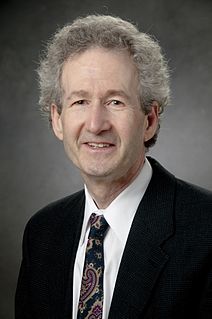A Quote by Judith Butler
I do not deny certain kinds of biological differences. But I always ask under what conditions, under what discursive and institutional conditions, do certain biological differences - and they're not necessary ones, given the anomalous state of bodies in the world - become the salient characteristics of sex.
Related Quotes
There's going to be biological differences between the genders. There's going to be biological differences between two women or two men. There's biological differences between all of us. My concern is, why are we so concerned about it? Why are we so worried about it? Why, whenever a study comes out about men do this one way and women do this one way, or men's brains and women's brains - why are we so interested in that? You know, what makes us so fascinated by differences between the sexes? And I think more often than not that interest is deeply embedded in sexism.
There is always a very delicate interplay between individual actions and institutional conditions. But there is no such thing as institutional conditions without any individual actions and no such thing as individual action without institutional conditions. So there is always personal responsibility.
Of all the differences between the Old World and the New, this is perhaps the most salient. Half the wars of Europe, half the internal troubles that have vexed European States... have arisen from theological differences or from the rival claims of Church and State. This whole vast chapter of debate and strife has remained virtually unopened in the United States. There is no Established Church. All religious bodies are equal before the law, and unrecognized by the law, except as voluntary associations of private citizens.
To begin to know the philosophy of socialism, in backward countries where the class differences are great, very great, and terribly exaggerated over the conditions we know in this country, to overcome this, the theory of revolution, of force and violence, was necessary within those political conditions. It couldn't be anything else.
In Russia itself the proletariat conquered in spite of the fact that there was no Soviet State in existence at the time elsewhere. For the victory are necessary, not only certain objective conditions, internal as well as external, but also certain subjective factors - the Party, the leadership, the strategy.
Confusion conditions activity, which conditions consciousness, which conditions embodied personality, which conditions sensory experiences, which conditions impact, which conditions mood, which conditions craving, which conditions clinging, which conditions becoming, which conditions birth, which conditions aging and death.
The condition of women in Islamic societies as a whole is far from desirable. However, we should acknowledge that there are differences. In certain countries, the conditions are much better and in others much worse. For example, the conditions women face even in Egypt differ a whole lot from what their Iranian counterparts deal with. The condition of women in Pakistan is far different from that in Saudi Arabia. This shows that you can have different interpretations of Islam.







































